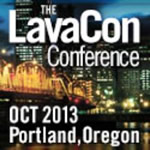Editor’s Note: Victoria Koster-Lenhardt will deliver a keynote address at LavaCon 2013 in Portland, OR, on “The Expanding Role of Content Professionals: Seize the Opportunity.” She recently spent some time answering TechWhirl’s questions about where and how roles for content professionals are expanding and evolving in a global marketplace.
 Victoria Koster-Lenhardt describes herself as a “communications professional” and her global career journey started with magazine journalism in New York. Over the course of the next 26 years, Vici transitioned into technical communication, working as a writer and department manager while an expatriate in Vienna, Austria. Her communication roles evolved to corporate communication, including internal and marketing communications, culminating in her current role as “Global Employment Consultant.” Vici uses all her skills in communication, management, employee engagement, and coaching to work with expat accompanying spouses on their career goals and transitions while living overseas.
Victoria Koster-Lenhardt describes herself as a “communications professional” and her global career journey started with magazine journalism in New York. Over the course of the next 26 years, Vici transitioned into technical communication, working as a writer and department manager while an expatriate in Vienna, Austria. Her communication roles evolved to corporate communication, including internal and marketing communications, culminating in her current role as “Global Employment Consultant.” Vici uses all her skills in communication, management, employee engagement, and coaching to work with expat accompanying spouses on their career goals and transitions while living overseas.
An expat for most of her career, she calls herself a “lovepat,” a person who moves overseas for love.
Can you define the term – Content Professional? Who are they? Who are they not?
Content Professional is a broad job title used to describe someone who researches and writes about a topic with the intent of informing readers, customers, and consumers so that they can make an informed decision or take action.
Although their deliverables are often lately associated with social media, these professionals create, reuse, and deliver content in any sort of media. The role appears in various departments in an organization including product development, marketing, advertising, business development, and human resources.
What name do you give the industry for creating, managing, publishing, distributing and preserving content?
Twenty-five years ago, I would have said the publishing industry. Today, however, I don’t believe there is one industry that owns all of these activities. Technology has changed everything, causing everyone to scramble just to keep up and be perceived as the leader. However, the technical communication industry has played a significant role in teaching and mentoring writers whose deliverables support customers in deciding which products to purchase and how to use them (often in the best or most efficient way).
How have you seen the Industry change over the last 5 years? Where is it heading in the next 5 years?
Worldwide, more people are working in technical communication than five years ago. Many of them are not native English speakers, but they are being hired to produce content in English. Many do not have formal training and have not attended a professional conference. Their job functions do not necessarily have the title “technical communicator” or “content developer,” and they do not identify themselves that way. Nevertheless, they are earning a living producing content.
In addition, I’ve observed how millennials have entered the communications field via content marketing. They are passionate, enthusiastic, trained, and tech savvy. They are a driving force in bringing back the disciplines of using “editorial calendars” and “communication strategies,” and scrubbing content that has been curated by multiple contributors so it sounds like one voice.
Suddenly all the old journalistic methods are not only back in style, but are bleeding edge. It’s great for the writing and editing communities.
At the same time, the lines between who is and who is not officially a content developer have blurred. Frankly, I don’t think it matters anymore. More and more businesses are turning to their customers (actively or passively) to confirm whether their products and  services are good (enough). I’d like to hope that trained and experienced content professionals are the ones proving to be the best producers and, therefore, are the ones being hired. After all, many continue to attend specialized conferences like LavaCon, network with leaders in all the related professional communities, and work hard to stay ahead of the learning and technology curves.
services are good (enough). I’d like to hope that trained and experienced content professionals are the ones proving to be the best producers and, therefore, are the ones being hired. After all, many continue to attend specialized conferences like LavaCon, network with leaders in all the related professional communities, and work hard to stay ahead of the learning and technology curves.
Going forward, the workforce will continue to diversify, even more than we are experiencing today. Competition will increase as more people applying for these jobs from all over the world. However, most of the innovation and the best training still have the best chance to come out of the USA. Finally, as more content is developed across organizations, there will be more jobs and opportunities for people who want to earn a living working in this industry.
How are roles for content professionals expanding or evolving?
The opportunities that exist today are the same ones that have existed during the last 30 years. That said, people who will enjoy expanding roles will be the ones who continually learn, identify consumer needs that can be addressed by content, deliver results, and create value.
There are loads of proven processes, methods, and tools for creating and delivering customer-oriented content. It’s our job to figure out the best combination and approach for our employers.
There is no silver bullet for employment. Companies continue to reduce headcount, become more productive, and rely on finding “the best talent” that’s available in this world. This current strategy works to address stakeholder pressure and produce products for an ever-demanding consumer. But, that’s a good thing, because everyone is striving to produce “the best” solutions. When that kind of environment exists, you as a content professional have the opportunity to be creative, use all your skills, and be challenged to produce something you’ve never dreamed of doing.
Roles expand and evolve based on a combination of three things: the visions you have for your life and career, the companies you choose to work for, and how well you master your skills and recognize your strengths.
It’s more about how you see yourself and your future rather than how a company, and industry, or a manager sees your current abilities.
Do you think the expansion of these roles is hurting other roles at a company? If so, which roles?
No, on the contrary. I think role expansion provides more opportunity for everyone and makes a career much richer.
What have you found to be the key factors in recognizing and scoring a “dream job” in content?
I see five factors that increase your chances of scoring a “dream job.”
- Have a vision for your life and build your career around it.
- Surround yourself with people who support your vision, believe in your strengths, and be the best you can be every day.
- Believe in your vision and keep working towards it until you achieve it.
- Stay nimble, don’t get hooked on a job title, and be ready to use any and all of your skills in new ways.
- Don’t follow the pack.
Where can people learn more about you? What’s the best way to connect with you?
Currently, the best way to contact me is on LinkedIn: http://www.linkedin.com/in/vkosterlenhardt .
Shameless plug question: What else do you have happening that you’d like our readers to know about?
Becoming an accidental spokesperson for expat life in Vienna: http://vimeo.com/73285803